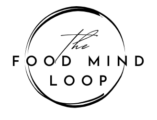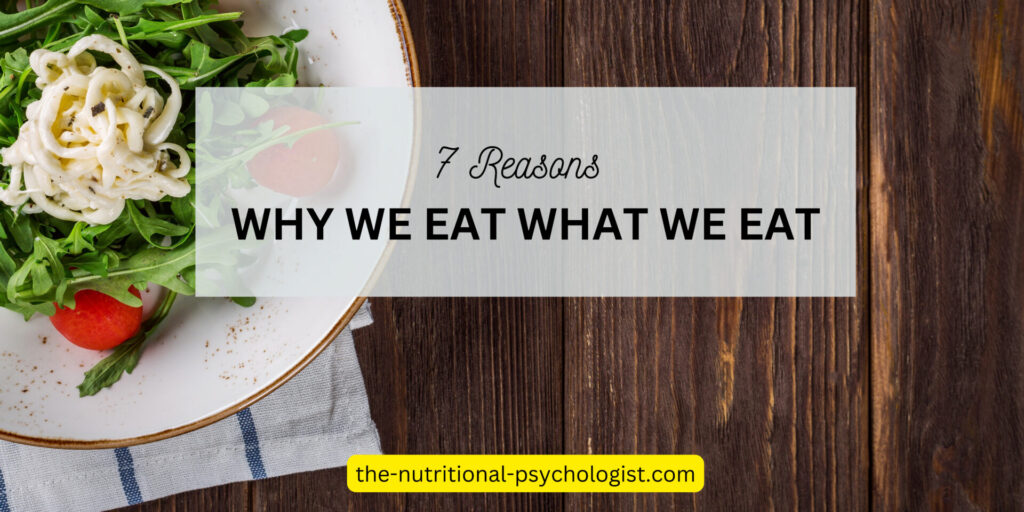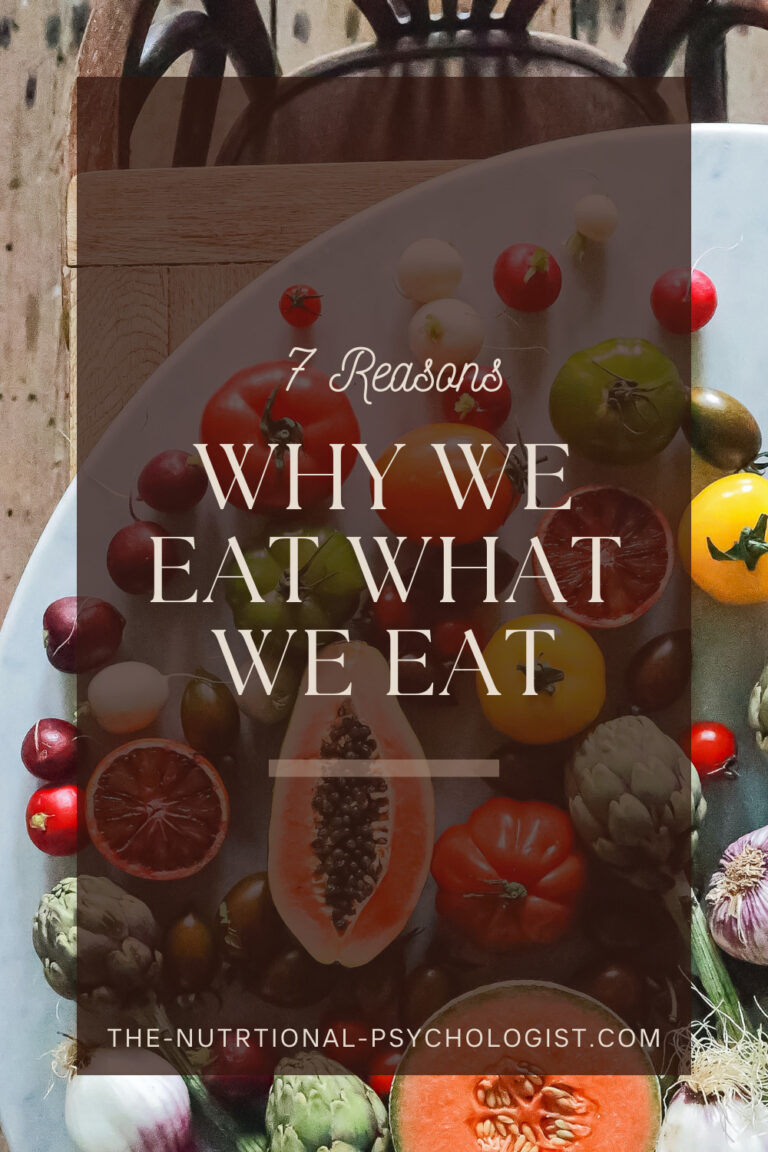Our thoughts and emotions, but also social influences affect why we eat what we eat. Take emotions for example. Everyone has experienced emotional eating at some point during their life. It happens when we eat food in response to certain feelings rather than hunger, and it’s completely normal. The problem is that emotional eating is related to unhealthy food choices and excess weight. You probably remember moments, when you were feeling stressed or anxious, and you reached for high-calorie snacks, instead of preparing a healthy meal.
That is how emotional eating, even though it happens to everyone from time to time, can have a significant impact on our health if it gets in the way of following a healthy diet that provides us with all the nutrients our body needs. People, who experience emotional eating on a regular basis often have a lower-quality diet, with a lower intake of fiber, magnesium, vitamin C, etc. and a higher intake of sodium and saturated fats.
If our emotions start affecting our (healthy) food choices on a regular basis, it is time to start looking into our emotional triggers and finding new ways to cope with our emotions.
In this blog post, we will examine the reasons why not only emotions but also our thoughts, habits and social influences affect our eating habits. In fact, these factors don’t always lead to an increase in appetite. Some of them, like negative emotions, can also cause physiological reactions that naturally promote a lack of appetite. On average, 30% of people increase and 48% decrease their appetite or food intake when they are dealing with negative emotions, such as stress, anxiety, or anger.
So, these are 7 reasons why we eat what we eat (for better or worse):
- Emotional Eating as Coping Mechanism.
- Mindful vs. Mindless Eating
- Social Influences.
- Cultural & Family Influences.
- Reward & Pleasure Seeking.
- Habitual Associations.
- Convenience & Time
Top 7 Reasons Why We Eat What We Eat
Here are the 7 reasons your emotions, thoughts, habits and social influences affect what, when and how much you eat:
1. Emotional Eating as Coping Mechanism
The first and probably most common reason factor that affects our eating habits are emotions such as stress, sadness, anxiety, or even boredom, which trigger the urge to eat in order to deal with those feelings.
Foods induce emotions: that means, when we are dealing with negative emotions, we want foods that make us feel good instantly, so we don’t choose foods for their nutritional content but for how well they help us regulate our emotions.
Comfort foods, which are often rich in unhealthy sugars and fats, trigger the brain’s reward system and can improve our mood (at least temporarily). So whenever we eat these foods, we instantly feel better. This happens because certain neurotransmitters like dopamine, are released in our brain, and provoke feelings of pleasure and reward.
The problem is that emotional eating in order to cope with negative emotions may offer temporary relief, but it often leads to a cycle of negative outcomes. The initial mood improvement is short-lived, and over time, repeated emotional eating can contribute to unhealthy eating habits, weight gain, and a perpetuation of the underlying emotional distress. Additionally, if you constantly rely on emotional eating in order to deal with negative emotions you won’t come up with alternative ways to deal with them.
2. Mindful vs. Mindless Eating
Our emotional state can also impact how we approach eating, encouraging either mindful or mindless eating. Positive emotions and especially a relaxed mindset will lead to more mindful eating, where you take your time to prepare and eat your food and allow yourself to be fully present in the moment because no unwanted thoughts or emotions are distracting you. You will choose healthier foods and be more attention to your hunger and fullness cues.
On the other hand, negative emotions can provoke mindless eating, where you eat without paying attention to portion sizes or nutritional content. If this happens regularly it can lead to weight gain and other health problems.
In fact, the solution to solving any problems related to emotional eating also starts here. Mindfullness. You start being more conscious and identify situations, in which you usually eat mindlessly (and probably eat way too much). You recognize which emotions cause emotional eating for you, it could be frustration, anger, stress, sadness, anger etc. You realize that there are many other (much healthier) alternative ways to deal with these emotions. The result is freedom. Little by little you will be free from emotional eating.
3. Social Influences
Social influences have a very strong impact on our emotions and the environment in which we eat and often determine what, when and how much we eat.
Take social gatherings, like weddings or parties for example. The food is being served, the waiter offers you some and you answer: “No, thank you. I’m not hungry yet, maybe in an hour or so I’ll eat something.” That would be a bit strange, wouldn’t it? These types of social events are often characterized by many indulgent, unhealthy food options and overeating. But that is okay! You don’t have to restrict your eating at weddings or celebrations (except maybe if you are a wedding photographer and you attend 5 events a week).
So, often we adjust our food choices and eating behavior to the people around us. If you surround yourself with people who make healthy choices, you will be more likely to do the same. But, if you spend a lot of time with others who tend to overeat or choose mainly unhealthy foods, it will have an impact on you too.
The media, advertising, and TV also affect what we eat. By constantly being exposed to images of the “perfect body” we start comparing ourselves to them, which can lead to a negative body image and trigger restrictive or unhealthy eating habits.
If you can, try to use the social influence of others on your eating behavior to your advantage. Find friends, family members, and support groups that provide encouragement, motivation, and accountability for making healthy choices.
4. Cultural & Family Influences
Cultural and family influences (often from our childhood) have a profound impact on why we eat what we eat. They determine our preferences, attitudes, and behaviors related to food.
In general, we tend to like the foods and dishes we grew up with. Traditional dishes and recipes are passed down to us from our family and create a strong connection between food and (cultural) identity. Depending on where we grew up, we will be used to different eating patterns as well. Some cultures or families have set meal times, while others prioritize snacking throughout the day. These patterns and preferences (sometimes unconsciously) affect our eating habits when we grow up.
We also tend to share similar beliefs to our family about what you need to do to be healthy in general. These beliefs shape our attitudes toward weight, body shape, and food choices when we are older.
Understanding the influence of cultural and family heritage is important. We can actively leverage positive habits we learned during our childhood and it will also help us understand why it can be so hard to overcome unhealthy eating patterns that are common in our family or culture.
5. Reward & Pleasure Seeking
What makes to the things we do? Some psychologists like to explain it this way: Whatever we do, the goal is the maintain or enhance our well-being. Reward and pleasure seeking can explain almost everything we do on a daily basis. This includes eating.
Our brain associates certain foods with pleasure and those are the foods we like to eat frequently. We are unlikely to choose foods that we don’t enjoy eating, even if know they will have a positive impact on our health. As we don’t experience pleasure as we eat them (our brain will not release dopamine, a neurotransmitter related to motivation and reward), we probably won’t reach for that specific food again in the future.
Certain foods, especially those high in sugars, fats, and salt, can trigger this surge of dopamine release. The pleasurable sensation we get when we eat this kind of food makes us choose them again in the future, looking for the same positive experience. This is especially true for hyper-palatable foods, which contain a specific combination of fat, sugar, salt and carbohydrates. These are designed to maximize pleasure and reward, making them almost impossible to resist. Have you started eating a bag of potato chips and couldn’t stop until it was empty? That’s what I mean.
Understanding the impact of reward and pleasure seeking on eating habits is essential if you want to transform your diet. While pleasurable foods can make you feel good (and it’s okay to enjoy them from time to time!), it’s important to have a balance overall diet and consider the nutritional value of what we eat.
6. Habitual Associations
Habitual associations play a significant role in our eating habits by creating automatic behaviors that are triggered by specific cues or situations. So let’s explain how these associations are created and how they make us act without even having to think.
(Eating) habits form when a specific cue or trigger consistently leads to a particular behavior that makes us feel good (if not, we probably wouldn’t repeat it). A good example of this is snacking in front of the TV. In this case, the location (in front of the TV) becomes the trigger to reach for a snack, and this happens almost automatically after a while. Other triggers can be a specific time of the day, an emotional state, or even the presence of certain people.
Apart from the cue that triggers the behavior, the reward is the third important factor, when it comes to forming a habit. The better the reward (like the pleasurable taste of a certain food) makes us feel, the more it is, that we repeat that behavior. Over time habits become stronger, more automatic and more resistant to change. Once a habit is established, no more conscious decision-making is required in order to start the behavior.
For that reason, it can be very difficult to change habits. Even when we try to make different choices, the power of the habit can override those intentions. But it is possible to establish new eating habits (with a lot of patience and practice!), it can be a game changer on our way to a improved relationship with food and better health in the future.
7. Convenience & Time
Convenience, time, and budget are significant factors that strongly influence our eating habits. They play a crucial role in determining what we eat and how we prepare our food.
If we have limited time, we will probably choose foods that are either very quick to prepare or require no preparation at all. Even though there are some healthy options that need little preparation, we usually reach for pre-packaged meals, fast foods, or processed snacks. If we have no time to cook. we might rely on delivery, eating out or other ready-to-eat options, which are often less healthy than cooking yourself.
Of course, it is not going to have a big impact on our health, if we eat out or grab a quick snack or fast food from time to time. It becomes a problem if that is the norm, and we always rely on eating out instead of preparing healthy food at home.
While you might think that your busy schedule won’t allow you to make three homemade meals a day, it is really more a matter of changing your priorities and your mindset. There are many strategies out there, that make it possible to combine a busy lifestyle with healthy cooking at home. They include meal planning, batch cooking, frozen options and many more.
So, while it is certainly not always easy to stay on top of a healthy diet and cook homemade meals every day, we have to make a conscious decision to invest time and effort in our health and start making small changes, because in the end, health is the foundation of everything else in our life.
Why Do We Eat What We Eat: FAQs (Frequently Asked Questions)
This answer to this question lies in the relationship between stress and emotional eating. Stress can trigger cravings for comfort foods due to the brain’s reward system and the release of hormones like cortisol, making us feel less anxious (at least for a short time).
Knowledge is not everything when it comes to (eating) behavior. The influence of factors such as convenience, habit, social pressures, and psychological factors on food choices is very important.
Emotional triggers, mindless eating and other factors such as hyper-palatability of certain foods can cause us to eat more food than our body needs.
Social influences have a big influence on our eating behavior. Peer pressure, social norms, and the desire to fit in can shape our food choices in different social settings.
Cultural influences, early childhood food experiences and components of certain foods (salt, sugar, fats, & carbohydrates) explain why some foods taste better to us than others.
Summary
If we want to change our eating patterns in order to achieve better health, we have to understand the reasons behind why we eat what we eat. Anyone who has tried to diet before and has eventually fallen back into old habits knows that other factors such as our (negative) emotions, habitual associations or social influences also have an impact on what we eat.
If we want a sustainable change in our eating habits, it’s not enough to know which foods are good or bad for us, we have to find and address all the psychological, cultural, social and environmental factors that influence what, when, and how much we eat.
To recap, the 7 reasons why we eat what we eat are:
- Emotional Eating as Coping Mechanism
- Mindful vs. Mindless Eating
- Social Influences
- Cultural & Family Influences
- Reward & Pleasure Seeking
- Habitual Associations
- Convenience & Time


